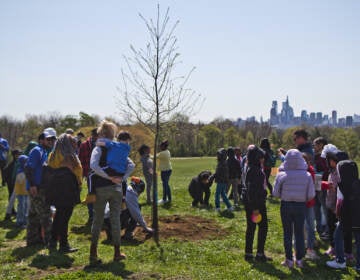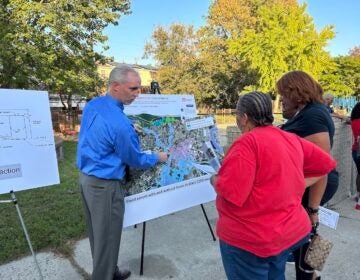4 ways Philly can fight illegal dumping
I see garbage every day in Elmwood where I live. There are things we can do to help.
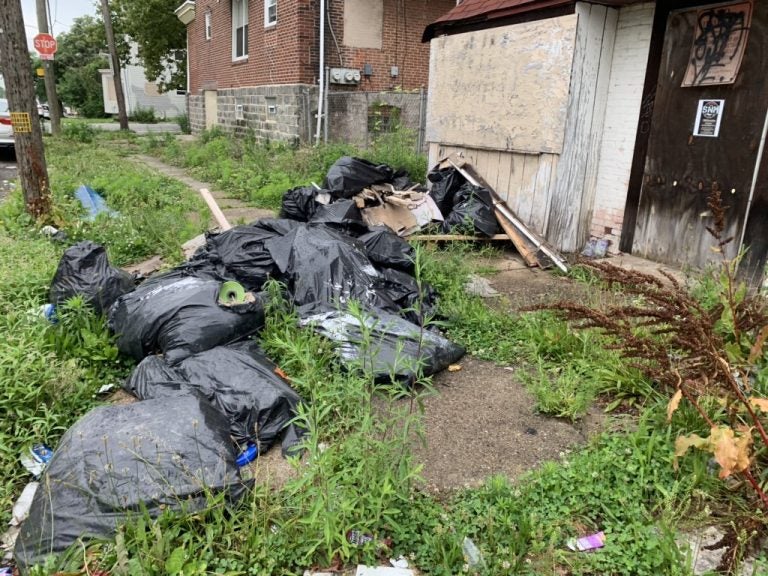
Bagged construction material dumped in front of a "cleaned and sealed” house in Southwest Philadelphia. (Courtesy of Oskar Castro)
I see garbage every day in Elmwood where I live. And it’s not just trash, there’s illegal dumping of larger items like furniture and construction materials too. I’ve struggled with Philadelphia’s dumping culture for many years, and while I do what I can in my neighborhood to mitigate it, I often wonder: What can the city do to build a solid anti-littering culture?
One step the city has taken is partnering with organizations and businesses on the Community Cans Program to keep certain corridors clean. I’m pleased to walk by these cans on Elmwood Avenue, right near my home. But is this enough? Shouldn’t the city be doing more?
I was really taken aback to learn about the Zero Waste and Litter director’s thoughts on trash and the city’s role in cleaning it up. While I share Nic Esposito’s frustration about our dirty city, I don’t agree with his perspective that it’s up to residents to manage trash—that job is on the city. We do not “expect city government to serve as a 24-hour concierge service,” we expect the city to provide the basic services that we pay for.
This perspective overlooks the role city managers play in ensuring equity of service to all districts, something that doesn’t seem to happen. Esposito’s op-ed seems dismissive of the expectations marginalized neighborhoods should have regarding city services, ignoring the fact that these neighborhoods often don’t have the resources that wealthier neighborhoods may have to pay others to keep their streets clean.
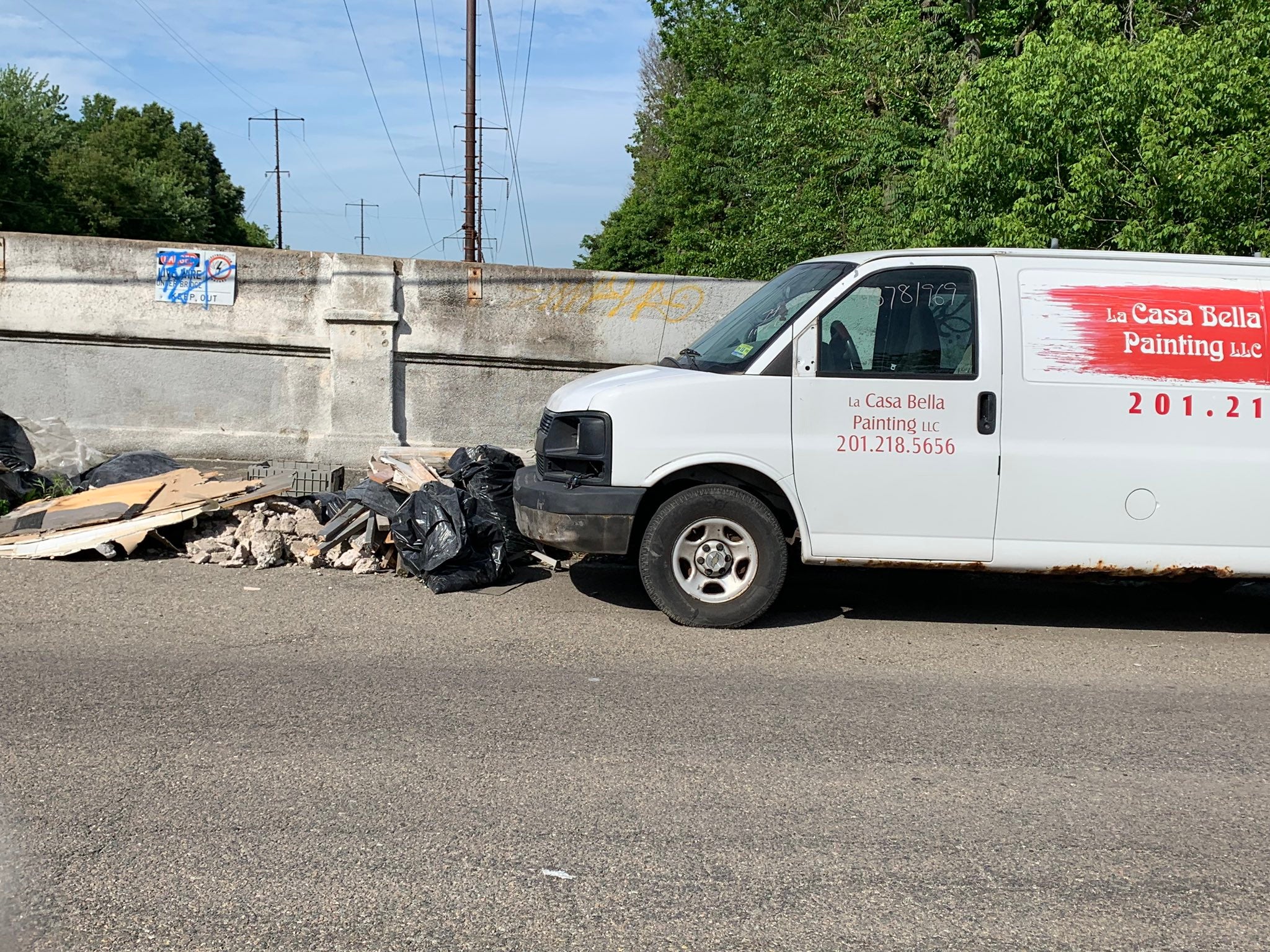
I believe the city can and should expect more responsibility from the people it employs to keep our streets free of waste and litter if it expects the residents to embrace their own agency. I’d like to see city leaders consider doing the following with the systems and employees they already have in place:
Enlist the eyes of the police department to address illegal dumping
Police officers are public servants whose jobs are tied to the streets in a literal way. These city employees get to see every block up close and personal daily. I don’t see why it would be difficult for officers to call in every case of illegal dumping that they encounter. Creating an app for residents to report incidents is integral to a community consciousness, but making it a fundamental responsibility of the police to deal with the crime of illegal dumping as soon as they notice it should be an easy lift.
It would hopefully mean that reports are taken seriously and resolved expeditiously given the source of the reporting.
If sanitation workers see something, they should say something
The other city servants who get to see the city up close and personal are those on the sanitation trucks. I find it confusing that the trucks that would take my sofa on the curb in front of my house and drive by the sofa someone dumped on the bridge weeks ago. Maybe there’s more to why they don’t collect that trash, but those workers should at least have the responsibility of reporting what they see when they see it.
Think of it like this: A nurse taking a shortcut through a busy hallway wouldn’t likely ignore a patient who is lying on the floor bleeding with no help simply because that wasn’t the ward they were assigned to.
Conduct an equity audit of 311 response times
The city seems especially slow to respond to calls about illegal dumping from marginalized neighborhoods. I would love to see an equity audit of Philly 311 calls by district and neighborhood to gauge response times and successful resolutions. I’m curious to see if any sort of bias impacts the way in which reports of illegal dumping are handled by the Streets Department. I’d hope not, but it sure feels like that’s the case as it often takes months for resolution.
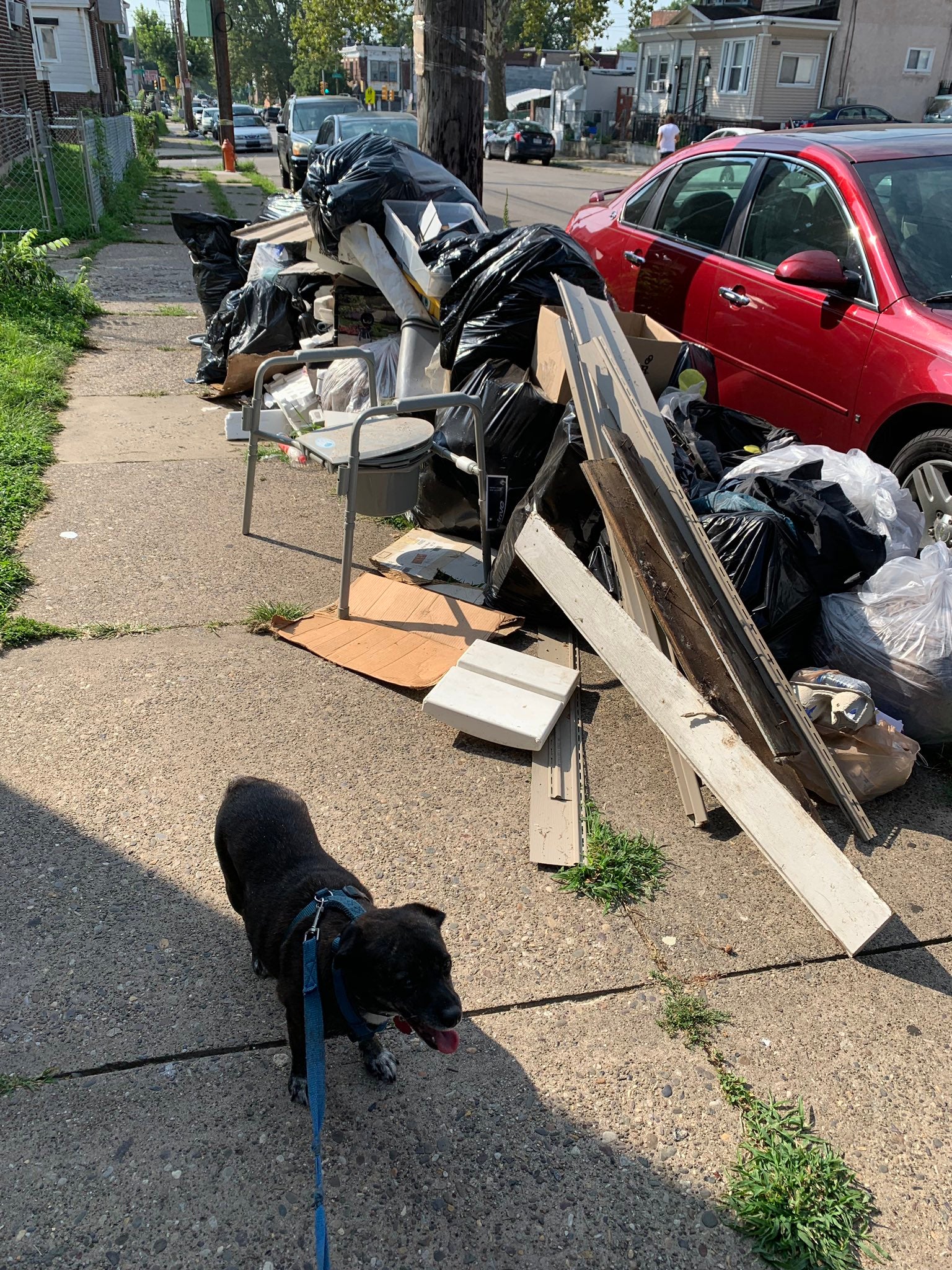
Clearly communicate with residents
Street sweeping will be coming to Philly by 2023 and the city needs to figure out how to effectively communicate with residents. I already see the challenge of residents not wanting to move their cars and I get it. Parking in my neighborhood can get weird and we don’t have regulated parking like other neighborhoods might, but I can guarantee that there are many people who will not even know to move their car. The city needs to communicate important information and help communities understand what they need to know. In my neighborhood, sometimes people don’t know or remember that trash pickup is pushed back by a day after a holiday. Given that many Philadelphians are immigrants, the city needs to intentionally and effectively communicate with my neighbors who don’t have English as a first language. They live here and deserve the same as people from other parts of the city.
This is something that doesn’t have to wait for street sweeping to begin, it can begin now.
It is true that the city cannot solve the trash and litter issue that we face by itself. It is also true that the city can do a lot more with the resources it already has to keep marginalized communities free of waste and litter.
Oskar P. Castro is an artist and a nonprofit professional with over 25 years of service. He serves as the Philadelphia Program Coordinator for Quaker Voluntary Service and also serves as its Director of Equity & Inclusion.
WHYY is your source for fact-based, in-depth journalism and information. As a nonprofit organization, we rely on financial support from readers like you. Please give today.





